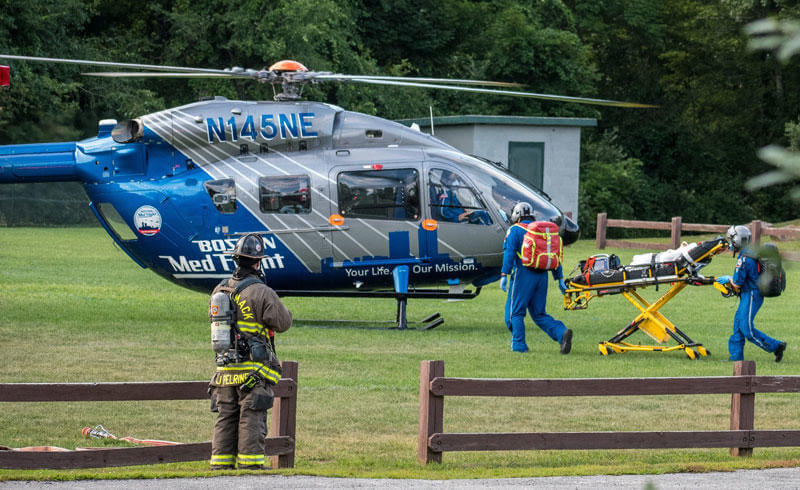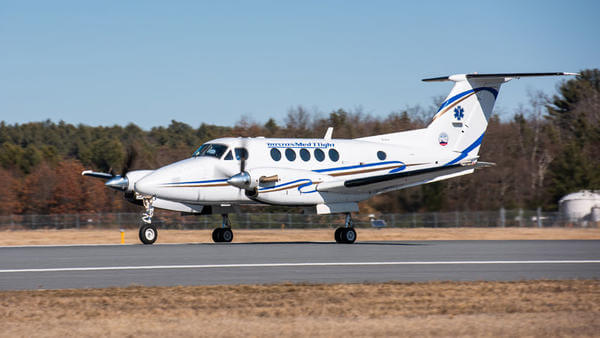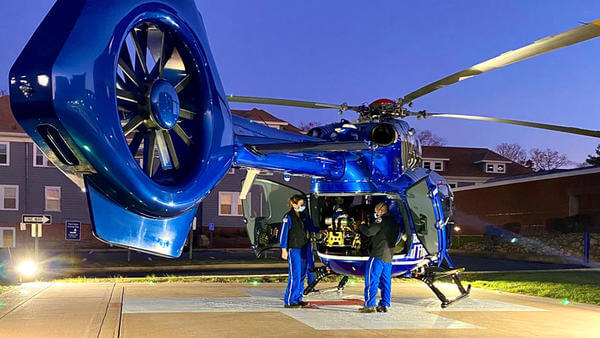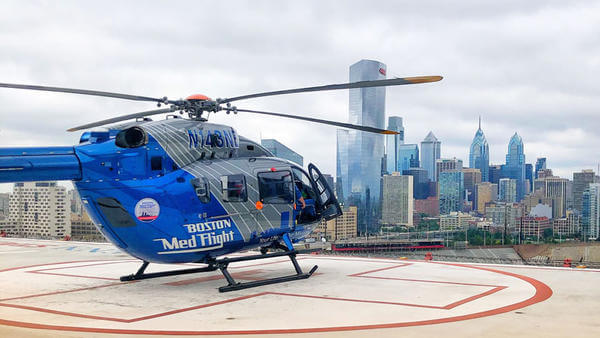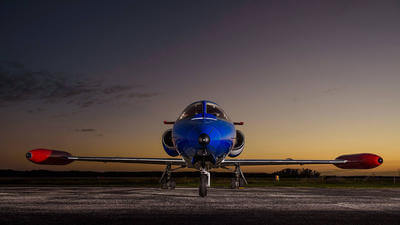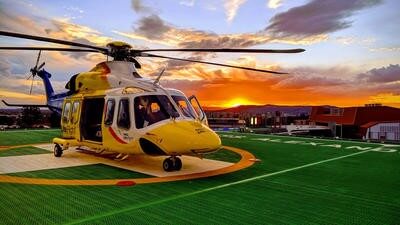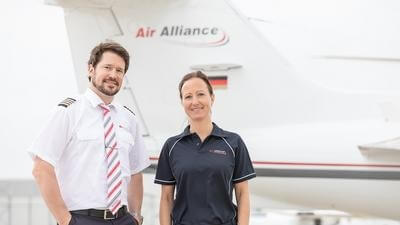Provider Profile: Boston MedFlight
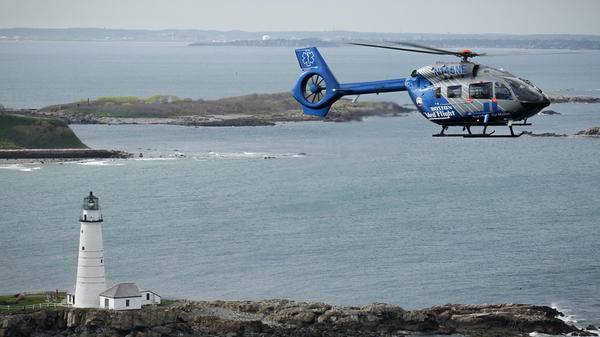
Boston MedFlight has served the communities in the Boston area of the US for over 35 years. Clara Bullock spoke to CEO Maura Hughes, to find out more about the service’s history, current technologies and medical training
Boston MedFlight was formed as a non-profit critical care transport service by a consortium of Boston teaching hospitals in 1985. Since then, it has worked with all cities, towns, community hospitals, and tertiary hospitals in the Boston region to ensure that patients suffering from a critical illness or injury receive the lifesaving care they need. Throughout its history, the service has cared for over 80,000 patients using its fleet of helicopters, critical care ground ambulances and aircraft, all of which are outfitted with medical equipment and serve as mobile intensive care units. On an annual basis, Boston MedFlight cares for over 4,700 patients.
With its highly trained critical care nurses and critical care paramedics, the service transports adult, pediatric, and neonatal patients with a very diverse range of diagnoses, including trauma, medical, neurological, respiratory, cardiac, and obstetrical concerns. They care for patients regardless of their insurance status or ability to pay, and provide over US$5 million in free and unreimbursed care annually to patients in need who are uninsured or under-insured. While the service bills patients’ insurance companies for the care, Boston MedFlight relies on charitable donations to support its mission, along with a subsidy from its consortium hospitals.
Key provider throughout the Covid-19 pandemic
Boston MedFlight is an integral part of the region’s healthcare system. In addition to providing care to the usual patient population of the critically ill and injured, it has been a key provider throughout the Covid-19 pandemic, transporting over 1,235 critically ill Covid patients into and out of community hospitals and tertiary hospitals to date, and ensuring that no one hospital becomes overloaded with critically ill patients.
Boston MedFlight has a clinical reputation for being able to care for the sickest of patients, including those on EMCO devices, premature babies in isolettes, patients suffering from heart attacks, strokes and traumas. They routinely transport patients on ECMO and patients using inter-aortic balloon pumps.
Maura Hughes explains: “The clinical training of our staff is extensive with clinical rotations in our consortium hospitals, high-fidelity simulation, and monthly in-person case reviews. We have a physician chief medical officer and assistant chief medical officer on staff. We also have associate medical directors on staff from each of our consortium institutions and beyond.”
A sophisticated aviation infrastructure
The clinical oversight of Boston MedFlight is extensive, and is matched by a sophisticated aviation infrastructure. “We obtained our own FAA Part 135 Certificate in recent years and, just like a Jet Blue or American Airlines, we are our own air carrier and employ our own helicopter pilots and aviation maintenance technicians, and are responsible for the aviation operational control of our program,” said Hughes. “All our helicopters are ATP rated – the highest civilian pilot rating. We send our pilots to simulation training each year. We also have a sophisticated GPS infrastructure allowing us to fly instrument flight rules (IFR) into our consortium hospitals and community hospitals.
Boston MedFlight has always prided itself for remaining on the leading edge of technology
"Boston MedFlight has always prided itself for remaining on the leading edge of technology that will enhance the safety and efficiency of our operations, and the level of care for our patients. Whether in medical equipment or aviation, the service remains at the forefront of the critical care air ambulance industry.”
In addition to helicopter air ambulances, a King Air 200 twin-turboprop airplane is used for longer range transports and during inclement weather (icing) that prevent the helicopters from responding.
Using technology to reduce pilot workload
Rick Kenin, COO of Transport, says: “We currently fly the H145 (BK-117D2) helicopters from Airbus Helicopters. These helicopters were purchased in 2019 / 2020 and will be upgraded to the H145D3 model in 2021 / 2022. As an IFR operator, we are constantly looking for the best avionics options to reduce pilot workload and assure safety through redundancy. The H145’s Helionix avionics system provides a stable, reliable platform for instrument flying in New England.”
To improve its reliability and safety during inclement weather, Boston MedFlight has developed a helicopter IFR infrastructure in eastern Massachusetts centered on its private instrument approach and departure procedures. These procedures were designed and certified exclusively for Boston MedFlight’s use at both its community hospitals and academic medical centers. Through co-ordination with local air traffic control, these provide Boston MedFlight pilots with a safe and efficient alternative to visual flight in low visibility.
“Not just the pilots, but all of our crewmembers are trained and wear night vision goggles during all night operations,” says Kenin. “These systems can be true lifesavers for our crews going into remote landing zones on moonless nights. Boston MedFlight was one of the first air ambulance operators to adopt the new white phosphor night vision goggle technology from Aviation Specialties Unlimited (ASU). We have found significantly better visual fidelity and reduced eye fatigue with the white phosphor goggles.”
Providing care for remote island communities
Boston MedFlight is the critical care air ambulance provider for eastern Massachusetts (the Boston area). As such, it also services the remote island communities of Nantucket and Martha’s Vineyard, requiring routine overwater transits. The service provides interfacility and scene call response not only in Massachusetts, but across New England and eastern New York.
Boston MedFlight also provides the only accredited critical care adult ground medical transportation in Massachusetts
Boston MedFlight also provides the only accredited critical care adult ground medical transportation in Massachusetts. Operating eight critical care ground ambulances, the service provides a mobile ICU environment for interfacility transport of these critically ill patients when the speed of a helicopter is not required.
Hughes concludes: “Over the next few years, Boston MedFlight will continue to advance our clinical care and aviation capabilities to ensure the highest quality and safety for our patients and our staff. We will also work with the critical care transport industry to improve quality and safety for all critical care transport patient."
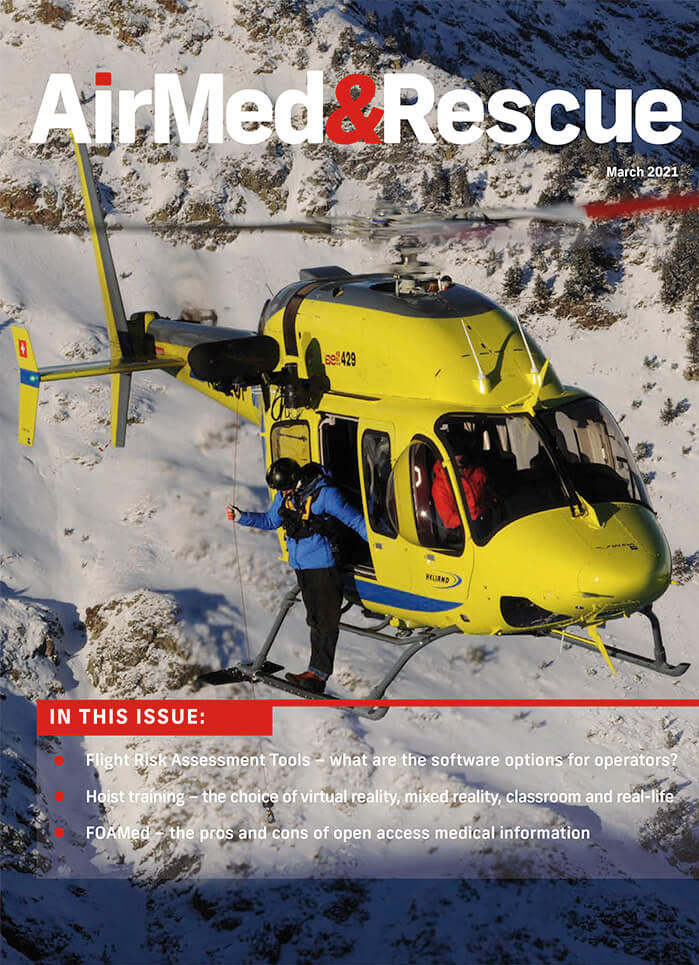
March 2021
Issue
In the March 2021 issue:
Flight Risk Assessment Tools – what are the software options for operators?
Hoist training – the choice of virtual reality, mixed reality, classroom and real-life
FOAMed – the pros and cons of open medical information exchanges
Clara Bullock
Clara Bullock is a writer for ITIJ and AirMed&Rescue. Initially a freelance writer for publications ranging from gardening news to music magazines, she has made the transition to writing about the ins and outs of travel insurance and aeromedicine. In her spare time she reviews books on Instagram and eats pasta.
